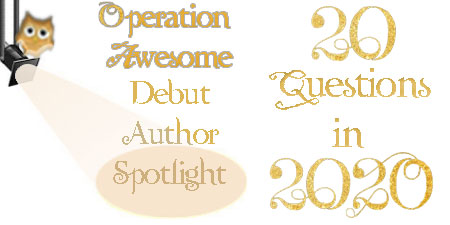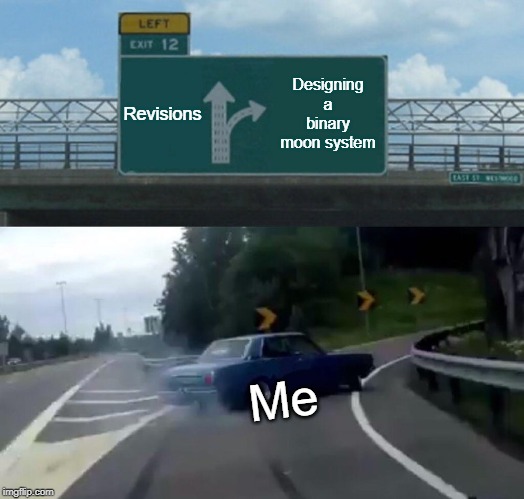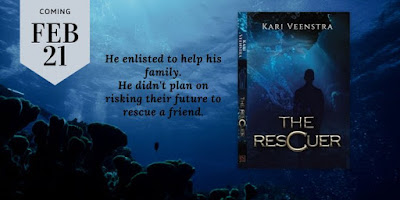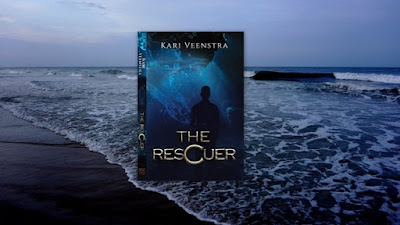
When Faith Lights the Way: The Quest to Restore Electricity to a War Ravaged African Hospital by Stephen H Vincent
1- What makes solar the best source of electricity for developing areas?
The best source of electricity varies by how much electricity the user needs and the location. For small users like households, solar works great.
For hospitals, schools, and orphanages, solar systems with battery storage are four times the cost of diesel fuel systems. While solar panels are getting cheaper, battery prices are not dropping very much, and government subsidies, which are a game-changer, are not offered in the developing world. We have done both, but are intrigued with using solar panels during sunny days to directly supply power, but smaller diesel engines or biofuels
engines to supply power at night or on cloudy days. The overall initial and operating cost of this type of system should be very effective.
2- Would you please, in 160 characters or less, give a #WriteTip ?
(no answer)
3- What is the best piece of writing advice you've received?
Write, write, write. I was not a writer and still don’t consider myself one. But, the more I write, the word pictures begin to have life, and the “great” thoughts and opinions running around in my head have now become clearer to anyone reading them.
4- Amazon has your book in the "Christian Inspiration" category. Is it more religious, reference, autobiography, or general non-fiction in your opinion?
It is the story of my life and the forks in my life’s river that I chose to take so that I would say more autographical. But, during my journey down life’s river, the book stops at a few spots and tells a more detailed story. These stories are adventure stories in my mind. Yes, these stories are a physical occurrence, but each contributed to my spiritual understanding of my beliefs.
5- Would you share a picture with us of your book in an interesting setting?
Smuggled in on a cold Colorado day reading a good book!
6- Could you tell us a bit more about Power from the SON?
An amazing group of all volunteers with a goal of supply electricity and power to the neediest people in the world. Why electricity? You can feed people, heal and educate them, but without electricity, it is difficult to better your life or the lives of those around you. Electricity saves lives and is a key component in an education that opens the world.
Our volunteers are engineers, electric construction people, medical professionals, lawyers, secretaries, people who know electricity, and those who have trouble screwing in a lightbulb.
We have provided about ten electric systems to hospitals, schools, seminaries, and orphanages in Liberia, Sierra Leone, and Honduras,
7- What's your Twitter handle, and do you have two or three writer friends on there to shout-out to for #WriterWednesday ?
I am too much of a dinosaur to do twitter, but I do have a few writer friends. Lindsey Barlow helped me with editing and has just had a book published, Pivot. Andrew Natsios did the forward for When Faith Lights the Way and is the former Administrator of the US Agency for International Development (USAID). Currently, he is an Executive Professor at the Bush School at Texas A&M University. Also, Rabbi Dr. Peter Tarlow, the author of numerous books and articles on religious subjects and tourism security, deserves a shout-out.
8- Do you have a favorite #bookstagram image or account/ profile?No, sorry.
9- What most motivates you to read a new book?I love stories of common people who are overcomers and have given their all, people who are explorers or inventors. I am inspired by those who have sacrificed for the sake of others.
10- It's our tenth anniversary! How far has your writing come in the past ten years and where do you see your writing career ten years from now?Ten years ago, I was in Africa doing my first electrification of a hospital torn by fourteen years of civil war. Writing was the furthest thing from my mind. In ten years, I hope Power From the SON has grown and is providing multiple electrical systems per year, and I can spend my time promoting by writing and speaking about our work and encouraging others to follow their quest.
11- What is your favorite book by someone else, what's the author's Twitter handle, and what do you love most about that book? #FridayReads book recommendation time!
Author name: Alex Kershaw
@kershaw_alex
Title: The First Wave
Love because: His work gives you the facts, and the words transport you to the scene. His stories tell of people who gave their all for their country, family, and friends.
12- What emotions do you hope your book will evoke for the reader? Hope. From reading that there are everyday unknown and unheralded people in the world doing good things because it is the right thing to do.
Inspiration. That anyone and everyone can make a difference for the betterment of the world.
13- What kind of impact do you hope your book will have?Within each of us, there is a quest. A quiet voice that encourages us to stretch our limits. All of us are ordinary people, but some follow this voice and great things result.
When Faith Lights the Way is the story of average people, facing impossible obstacles, who kept focused on their calling. Its purpose is to encourage and inspire you to follow your passion and purpose.
14- What is the best writing tool, program, or reference book you've ever bought?Well, of course, Word, followed closely behind, is Grammarly. I am an engineer by training and profession, and I have forgotten so much about sentence structure, punctuation, and I have always been a terrible speller!
15- diversebooks.org #WeNeedDiverseBooks What's your favorite book with a diverse main character?The Boy Who Harnessed the Wind: Creating Currents of Electricity and Hope by William Kamkwamba, Bryan Mealer
It is a true story of ingenuity, perseverance, and determination to improve the lives of his family and villages. Netflix is premiering a movie based on this book.
The Boy Who Harnessed the Wind is about a single person working to take ordinary items that were available in his village and build an electric generator that could supply a small amount of electricity that benefited everyone.
16- Who is your favorite book review blogger?I am usually behind social trends, but in this case, maybe I am ahead.
WYS: What's Your Story? By Brandon Jones kicked off on January 1st. It is a video blog, whose purpose is to inspire. He interviews fascinating people and adds pictures to enhance and describe the topic. Each section is less than five minutes, and the complete story is told over several episodes. Brandon’s input and opinion adds interest. I was privileged to talk to Brandon about When Faith Lights the Way. What’s Your Story? can be found at
https://www.facebook.com/WYS-Whats-Your-Story-114544263332521/
17- What was the deciding factor in your publication route?Being a rookie writer with NO credentials, a smattering of print media networking contacts, and no experience, I contacted multiple agents and received no acceptances. I researched online self-publishing organizations and decided Fedd Agency in Austin, Texas, was a good fit for me.
They helped me with editing, did the cover design, and had the books printed. Next, I had all these books at my house and no experience in marketing. I tried Barnes & Noble, and other sellers with the same lack of interest on their part. Basically, they had no interest in someone not listed on the New York Times bestsellers list. So, I returned to the internet and found PR by the Book. They have set up various TV and radio interviews and podcasts that have helped me get my message out.
18- Which author, past or present, do you feel most resembles your work?I am inspired by fiction or non-fiction, where people achieve objectives where the impossible becomes possible due to an unwavering commitment to their quest. For non-fiction, writers sharing the unvarnished telling of the facts of an extraordinary accomplishment gives me the courage to step out of my boat. David Roberts, author of Alone on the Ice: The Greatest Survival Story In The History Of Exploration, is such a writer.
A few months ago, I had the privilege to meet and talk with Alex Kershaw, New York Times Best Selling Author, and he even asked me to send him my book. His work gives you the facts, and the words transport you to the scene. His stories tell of people who gave their all for their country, family, and friends.
19- Would you please ask our audience a question to answer in the comments?What has that inner voice encouraged you to do, and what was the result?
20- Anything else you would care to share about your book and yourself?
Steve is a successful businessman with a Bachelor of Science degree in Engineering from Texas A&M University. His first career spanned thirty-four years in the electric utility industry. In his second career, he has redirected his efforts to provide state of the art electric systems to improve the health and education of the neediest people in the world. Steve's extensive experience working with utilities has made this unique contribution to humanity possible.
Steve founded Power From the SON (PFS), who’s first project was restoring electricity to a hospital in Liberia that was ravaged by a fourteen-year civil war. The dedicated hospital staff struggled without electricity while trying to rebuild and serve 24,000 patients a year. Routinely surgeons were forced to finish operations with flashlights in their mouths, often without anesthesia equipment. A few months after the project’s completion, the United Methodist Bishop proclaimed, “Thousands of lives will be saved, hundreds of lives have been saved already!”
During one week in August 2019, Power From the SON electrified a Honduran church/school and an orphanage separated by two hundred miles of ocean. These were not small house wiring jobs, but installations that required the transformation of a shipping container into an electric generation and switching location, coupled with a state-of-the-art electric distribution system.
Steve is the author of When Faith Lights the Way: The Quest to Restore Electricity to a War-Ravaged African Hospital.
http://whenfaithlightstheway.com/
https://www.amazon.com/When-Faith-Lights-Way-Electricity/dp/1949784029
https://www.facebook.com/Power-From-The-SON-230919783730495/
When Faith Lights the Way: The Quest to Restore Electricity to a War Ravaged African Hospital by Stephen H Vincent













